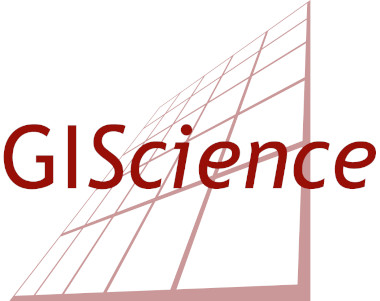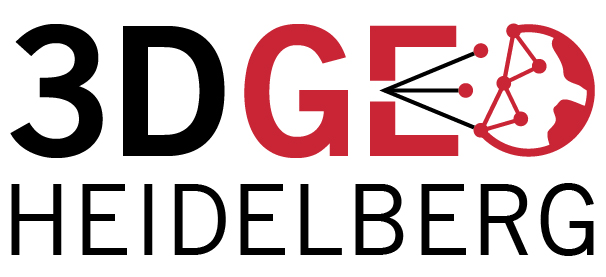Tag: MapSwipe
-
Empower Humanitarian Mapping with Deep Neural Networks to Detect Human Settlements
Recently, earth observation by satellites has shown great capability in supporting a range of challenges such as disaster assessment, agriculture monitoring, and humanitarian mapping. MapSwipe, as a humanitarian mapping app, provides a crowdsourcing platform to collect volunteered geographical information (VGI), in order to generate the demanding base map of human settlements for better planning of…
-
Put the world’s most vulnerable people on the map with MapSwipe
Humanitarian organizations can’t help people if they can’t find them. This was the simple reason to create MapSwipe back in 2016 and it is still as pressing as in the very beginning. In the last 2,5 years volunteers have contributed more than 18,000,000 results, which help humanitarian organizations to create maps of human settlements and…
-
Over 50 Open Source GIScience Repositories on GitHub
The GIScience Research Group at Heidelberg University and the Heidelberg Institute for Geoinformation Technology (HeiGIT) are happy to share the their GIScience github repository contains now already over 50 open source repositories and it’s still growing. These contain results from several research projects and in particular also some very active long term activities. Most of the tools…
-
GeOnG Conference 2018: Workshop Materials and Slides
After the successful GeOnG conference 2018 in chambery we want to thank the organizers and all participants. We contributed in several ways, as already highlighed in our previous blogpost. Now, we also want to share our slides and workshop material with everyone interested. Round table discussion: Machine Learning, AI & satellite imagery: what impact on…
-
Deep Learning from Multiple Crowds: A Case Study of Humanitarian Mapping
Our paper about Deep Learning from Multiple Crowds: A Case Study of Humanitarian Mapping is available online now. Satellite images are widely applied in humanitarian mapping which labels buildings, roads and so on for humanitarian aid and economic development. However, the labeling now is mostly done by volunteers. In a recently accepted study, we utilize deep…
-
Deep Learning from Multiple Crowds: A Case Study of Humanitarian Mapping
Satellite images are widely applied in humanitarian mapping which labels buildings, roads and so on for humanitarian aid and economic development. However, the labeling now is mostly done by volunteers. In a recently accepted study, we utilize deep learning to solve humanitarian mapping tasks of a mobile software named MapSwipe. The current deep learning techniques…
-
BuFaTa Mapathon HD – Spreading the Word about OpenStreetMap and Missing Maps
Last weekend Heidelberg was the host city of this semesters geography “BuFaTa” (Bundesfachschaftentagung). During this four day event student associations from Germany, Austria and Switzerland and their members came together to discuss, learn and spend time together. The event was organized by an excellent student team from Heidelberg. The disastermappers Heidelberg contributed to the BuFaTa by organising…
-
Enhancing Crowdsourced Classification on Human Settlements Utilizing Logistic Regression Aggregation and Intrinsic Context Factors
Among semi-automated methods and pre-processed data products, crowdsourcing is another tool which can help to collect information on human settlements and complement existing data, yet it’s accuracy is debated. Whereas the potential of crowdsourced datasets for training of machine learning algorithms has been explored recently, only few work has been done towards utilizing machine learning…
-
disastermappers heidelberg OSM Mapathons this semester
as mentioned earlier this Monday will see the first of our disastermappers heidelberg Mapathons this summer semester. But this will definitely not be your only chance to participate in some collaborative OSM mapping or learning how to work with OSM data this semester at Heidelberg University. So here is the current schedule. This should help…
-
Semester Start Mapathon with Kathmandu Living Labs
Dear Students, Mappers and Employees, we would like to invite you to the first mapathon, mapping party, mapswipeathon of this semester, which will be focusing on Nepal. (Just in time with the upcoming talk at the HGG on tuesday.) 😀 When? 07.05.2018, 6 pm Where? Geographisches Institut, Berliner Straße 48 Our mapathon is organized in…
-
Keynote at GISRUK Conference 2018, Leicester
Prof. Dr. Alexander Zipf is a invited keynote speaker at the 26th annual GIScience Research UK conference (GISRUK) will be held at the University of Leicester on 17-20 April 2018. On Thursday April 18th he will give a talk on “Operationalising Volunteered Geographic Information – From Analytics to Improvement and Application“. Much research has been…


